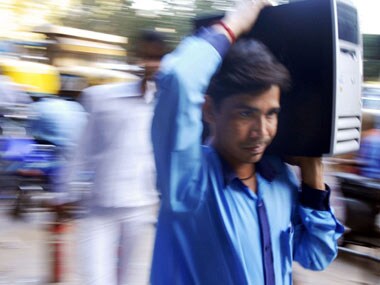New York: It’s meant as a warning on intellectual property theft but the US trade report reads like the Yellow Pages, outlining in great detail where the best markets are, both physically and online, to get loads of fake Ralph Lauren, iPhones and illegal copyrighted movies.
The United States Trade Representative Office (USTR) released its Notorious Markets List which identifies bazaars around the world in countries from China to India that sell goods that are rip-offs of American products.
The report identifies the top websites in Europe and Canada that host or link to pirated music and movies. Online marketplaces like Sweden-based The Pirate Bay, Canada-based KickassTorrents, and BitTorrent aggregator Torrentz.eu, formerly torrentz.com help users download unauthorized copyright-protected US movies, television serials and music.
USTR chief Michael Froman said the markets got the “notorious” label because the “scale and popularity of these marketplaces can cause economic harm to US and other IPR holders.”
[caption id=“attachment_76331” align=“alignleft” width=“380”]  A scene from Delhi’s Nehru Place. AFP[/caption]
While naming and shaming China as “the leading place” for selling fake goods, the report gives a snapshot of the Garment Wholesale Center in Guangzhou, Silk Market in Beijing and the Zengcheng International Jeans Market in Guangdong. Hundreds of Chinese shops sell large amounts of counterfeit goods of all kinds, often in wholesale quantities perfect for foreign export, according to the report.
Six markets in India were listed and are Nehru Place and Gaffar Market in Delhi, as well as Mumbai’s Lamington Road and Manish Market and Hyderabad’s Chenoy Trade Center and Hong Kong Bazar.
The report noted that Indian shop owners are smart at hiding illicit merchandise prior to police raids, and returning it to shelves shortly after a raid. Of course, it will surprise no one to learn the police in India are paid bribes to look the other way; allowing these grey markets hawking everything from Apple iPhones to designer knock-offs to flourish.
The report said that in Hyderabad’s Chenoy Trade Center and Hong Kong Bazar there are a large number of shops that sell computer hardware and software which are adept at subterfuge. “While many shops sell proprietary software under warranty, many smaller shops discretely sell pirated products, including operating system software, electronic office tools, multimedia games, and anti-virus software, as well as DVDs and CDs containing other copyright-infringing content.”
The report calls out Nehru Place in New Delhi as a “prominent example” of places which deal in “large volumes” of pirated software and entertainment, and counterfeit goods. Delhi’s Gaffar Market was also described as “rife with counterfeit clothing, shoes, cosmetics, electronics, and other products, most of which are imported into India.”
The USTR also fingered markets in Colombia, Argentina, Ecuador, Indonesia, Mexico, Paraguay, Spain, Thailand and Ukraine for having markets openly selling US knockoffs and pirated movies, games, and computer software.
“According to a US Commerce Department study released in 2012, America’s innovative and creative industries support roughly $775 billion in merchandise exports annually and 40 million jobs here at home. The markets we have identified unfairly take from these American workers, diminishing the value and salability of their work and threatening their jobs,” said Froman.


)
)
)
)
)
)
)
)
)



